12 Effective Homemade Hair Rinse Recipes For Healthy Hair
Get shiny and healthy locks with some good old hair rinse recipes.
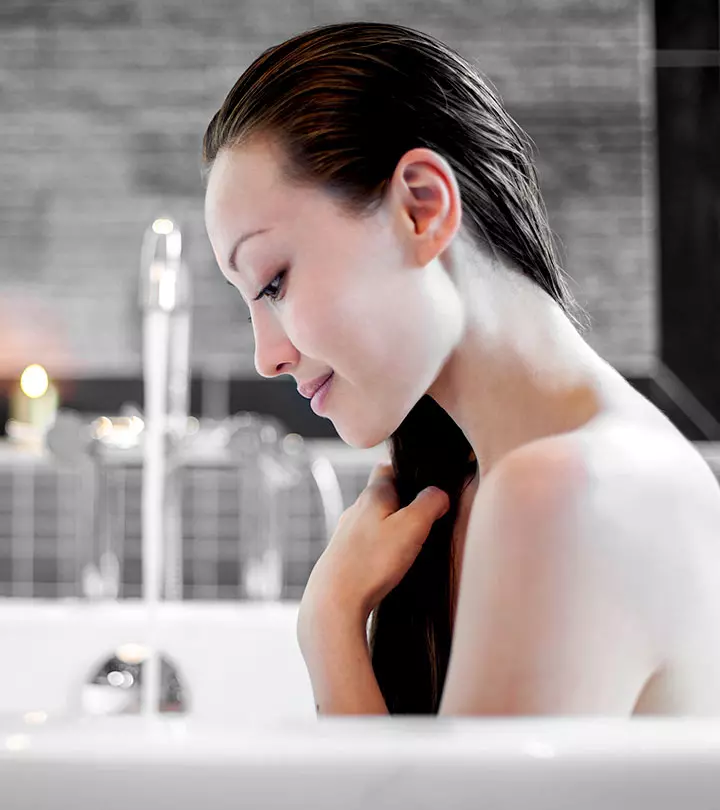
Image: Shutterstock
A good homemade hair rinse can solve many of your hair problems and can give you results like a spa treatment. It can be tough to maintain healthy hair. Since your hair comes directly in contact with dust, sunlight, and nasty chemicals, the damage is unavoidable. And that is why having a tried-and-true hair care regimen is important for maintaining its health and shine. A hair rinse is an essential part of any hair care routine and is also a relaxation technique for stress relief. We have compiled a list of 12 different DIY hair rinses for you to pick from. But before that, let’s talk about why you should use hair rinses. Keep scrolling!

In This Article
Why Do You Need A Hair Rinse?
If you’re still unsure and a bit skeptical about using hair rinses, the following is a list of reasons why you should try it.
- Hair rinses are rich in nutrients that help in the nourishment of hair.
- They also help add moisture to the hair shaft, calming frizz and making hair soft and shiny.
- They reduce breakage and split ends.
- Some hair rinses help balance the pH levels of your scalp.
- They also help balance oil production, which helps tackle issues like oiliness, dandruff, and hair fall.
- Hair rinses help clarify your hair and unclog your follicles. This makes your hair smooth, strong, and silky.
Keep reading to find out how to use a hair rinse and the different natural ingredients you can use to prepare hair rinses at home.
Key Takeaways
- A common hair rinse that can help balance the pH of your hair and scalp, reduce frizz, and add sheen to it is apple cider vinegar.
- Another excellent hair rinse that can strengthen the hair and stop hair loss is green tea.
- Rinses made of hibiscus flowers and leaves are full of vitamins and antioxidants that may strengthen and nourish the hair.
- Rinses made with chamomile tea reduce dandruff and encourage hair growth.
How To Use A Hair Rinse
A hair rinse is essentially the last step of washing your hair. It’s super simple and hardly takes a couple of extra minutes.
You Will Need
- Shampoo
- Conditioner
- Hair rinse
Processing Time
15 minutes
Process
- Detangling hair before you step into the shower avoids knots and helps in breakage prevention.
- Wash and clean your hair well with your usual shampoo.
- Proceed to condition your hair. If you have really dry hair, leave the conditioner on for 5-10 minutes.
- Rinse the conditioner out of your hair.
- Pour your hair rinse through your hair ensuring full coverage and squeeze out the excess liquid.
- Do not rinse hair any further.
Here are some easy to use hair rinses that you can make at home:
1. Apple Cider Vinegar Hair Rinse
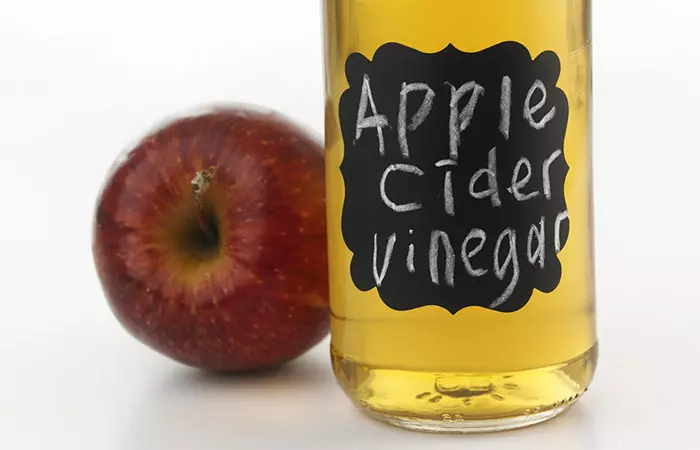
You Will Need
- 2 tbsp apple cider vinegar
- 1 cup water
Method
This is one of the simplest hair rinses you can make. Simply dilute 2 tablespoons of apple cider vinegar with 2 cups of water.
How Often?
You can use this hair rinse 1-2 times a month.
Why This Works
Apple cider vinegar helps remove grease and product build-up from your hair while balancing the pH and oil production. You may also use apple cider vinegar for dandruff. Its anti-microbial properties and anti-inflammatory effects may help combat dandruff-causing Malassezia and offer relief from itching. However, there is limited research in this regard.
2. Aloe Vera Juice Hair Rinse
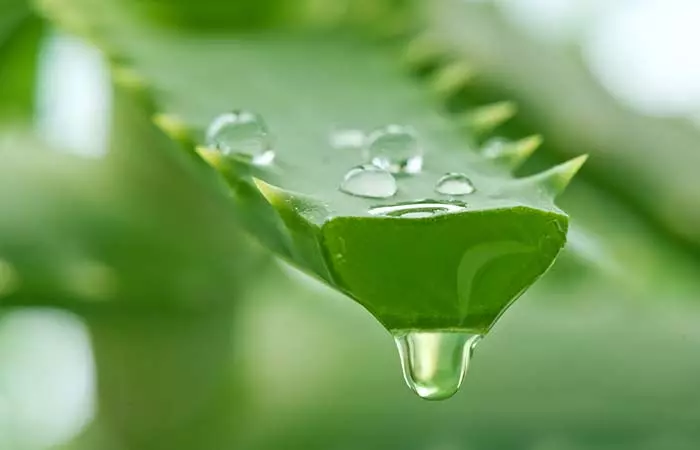
You Will Need
- 2 tbsp pure aloe vera gel
- 2 cups water
Method
Blend the aloe vera gel and the water together until you get a consistent liquid. Collect the diluted aloe vera in a jar to use for your hair.
How Often?
You can use this rinse once a week.
Why This Works
Aloe vera is a sun protectant for your hair and helps manage hair loss, dandruff, and other scalp inflammation (1).
It is an effective treatment for seborrheic dermatitisi A skin condition that predominantly affects the scalp and causes dandruff, dry, scaly patches, and inflammation. and damaged follicles. This ingredient may also help boost scalp health through its antimicrobial properties (2).
Doro Cubillo, a lifestyle content creator, uses aloe vera at least once a month to promote hair growth and combat dryness. She shares her experience in one of her vlogs as follows: “In my opinion, my hair always recharges with this treatment. It feels much healthier, stronger, moisturized, and very very shiny after doing an aloe vera hair mask (i).”
3. Lemon Juice Hair Rinse
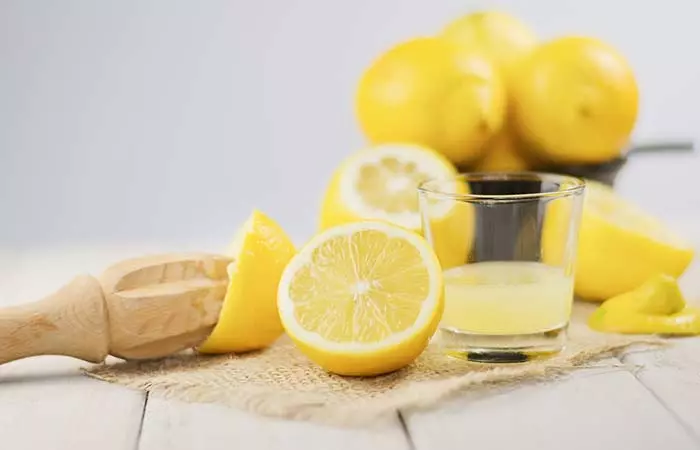
You Will Need
- 1 tbsp lemon juice
- 2 cups water
Method
This hair rinse is just as simple to make as the apple cider vinegar rinse. All your need to do is dilute the lemon juice with 2 cups of water.
How Often?
You can use this rinse once every one or two weeks.
Why This Works
Lemon helps boost hair growth while also balancing oil production.
The rich content of vitamin C increases collagen production, which helps your hair grow faster (3).
 Quick Tip
Quick Tip4. Black Tea Hair Rinse
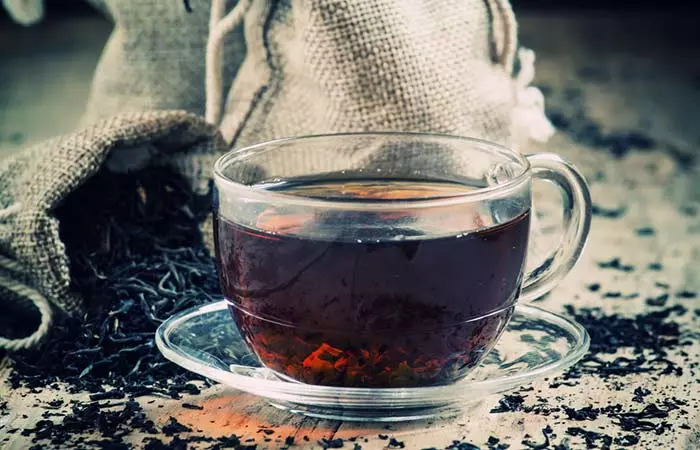
You Will Need
- 2-3 tea bags of black tea
- 2 cups water.
Method
Boil 2 cups of water and then steep the tea bags in the water. Let it steep for a couple of hours until the tea has completely cooled.
How Often?
Use this rinse once a week.
Why This Works
This is an amazing hair rinse for reducing hair loss and boosting healthy hair growth. According to a study, a Chinese black tea extract was found to improve hair growth in mice (4). Since black tea is a rich source of caffeine, it helps block DHTi Short for dihydrotestosterone, the most potent androgen sex hormone responsible for the sexual development of men. production, which, in turn, curbs hair fall (5) (6). It also helps darken your hair color by staining it. If you want tea rinses for hair that won’t color your hair, you can prepare it the same way using chamomile, jasmine, kombucha, or green tea.
 Quick Tip
Quick Tip5. Baking Soda Hair Rinse
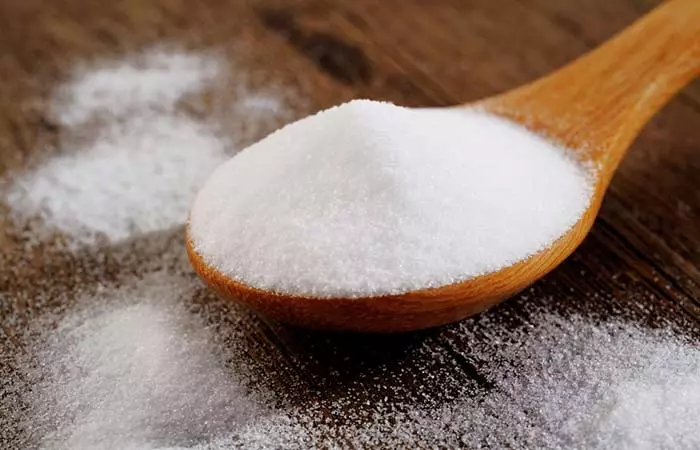
You Will Need
- 1/2 cup baking soda
- 1 cup warm water
Method
Mix the baking soda and water in a bowl until you get a smooth paste. Unlike other rinses, this one cannot be used as a final rinse. You can use this baking soda rinse to replace your shampoo, or you can use it after you shampoo and before you condition your hair. Simply apply and massage the rinse into your scalp and hair. Rinse it off with cool water and then proceed to condition your hair.
How Often?
Use this hair rinse once a month for oily hair.
Why This Works
Baking soda is extremely efficient at removing dirt, grease, and product buildup from your hair. It acts as a clarifying solution that cleans and boosts scalp health by balancing pH and oil production. However, the research is limited in this regard.
6. Coconut Water Hair Rinse
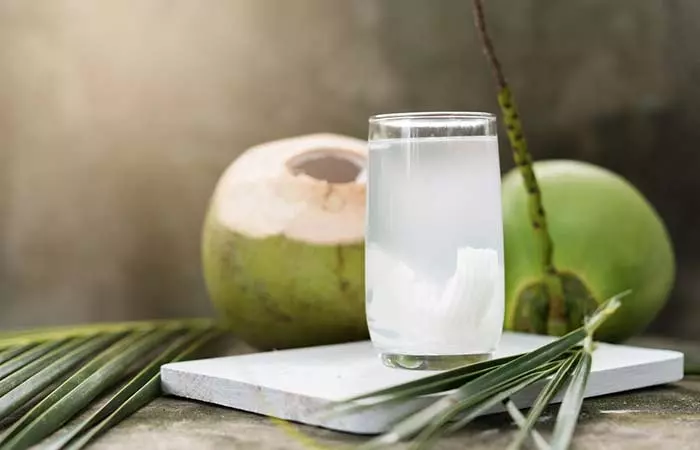
Unlike your regular rinse, you need to spritz this solution onto your hair rather than pour it through.
You Will Need
- 4 tbsp coconut water
- 2 tsp aloe vera juice
- 2 tsp jojoba oil
- Spray bottle
Method
Pour the ingredients into a spray bottle and shake well to combine. Instead of pouring this rinse through your hair, spritz it on with the spray bottle before you proceed to style your hair.
How Often?
You can use this after every hair wash.
Why This Works
Coconut water contains vitamins, minerals, and amino acids that are greatly beneficial when it comes to nourishing your hair. It also helps maintain hair elasticity and hydration, making it more manageable.
 Quick Tip
Quick Tip7. Coca-Cola Hair Rinse
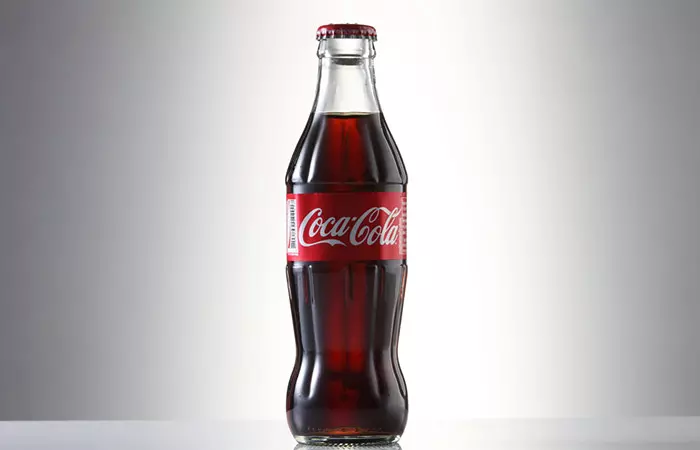
You Will Need
2 bottles of Coca-Cola
Method
You cannot use Coca-Cola rinse as a final hair rinse. Instead, you can pour the coke through your hair and leave it in for about 5 minutes. Proceed to wash and condition your hair and then style it as you normally would.
How Often?
Once a week.
Why This Works
Anecdotal evidence suggests that this method may help add body and texture to fine hair. It may enhance your hair’s natural curl while tightening the cuticle with its low pH. This helps add shine and smoothness to your hair.
8. Epsom Salt Hair Rinse
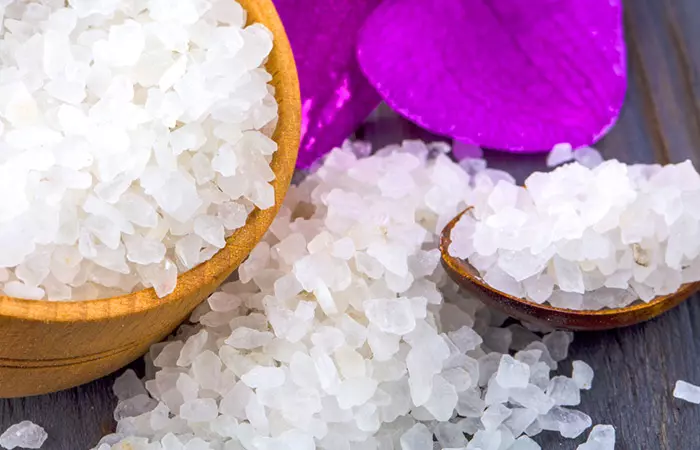
You Will Need
- 1 tbsp Epsom salt
- 1 tbsp conditioner
Method
Combine equal parts of Epsom salt and conditioner. 1 tablespoon of each should be enough for short hair – you can increase the quantity for longer hair. Apply the mixture to your hair after shampooing. Leave it in for about 15-20 minutes and then rinse off with water. Unlike a regular hair rinse, you have to finish with a final water rinse for this method.
How Often?
You can use this hair treatment/rinse once a week.
Why This Works
This Epsom salt conditioning treatment helps add volume and frizz control.
9. Honey Hair Rinse
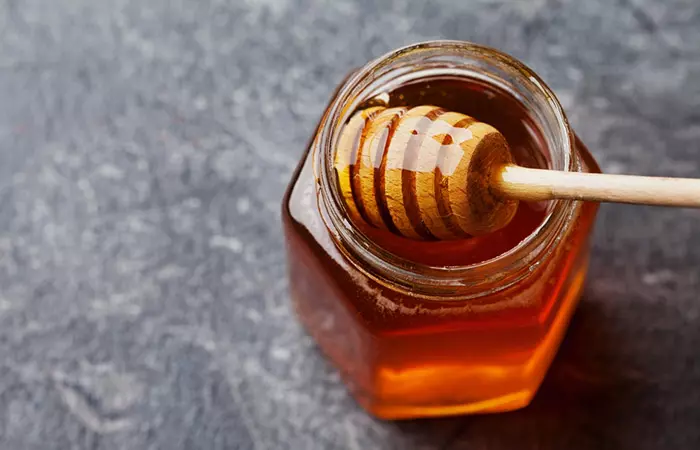
You Will Need
- 2 tsp honey
- 2 tbsp apple cider vinegar
- 1 cup water
Method
Pour the water into a jug, and to it add 2 tablespoons of apple cider vinegar and 2 teaspoons of honey. Stir well to combine and set it aside to use after you shampoo and condition your hair.
How Often?
You can use this hair rinse one or two times in a month.
Why This Works
Honey is a well-knownhumectanti A substance that attracts and retains water molecules, used in cosmetics to preserve and aid the loss of moisture. . This means that it helps seal the moisture in your hair shaft (7). The benefits honey offer are boosted when combined with apple cider vinegar as the vinegar helps shut the cuticles with its low pH.
10. Jojoba Oil Hair Rinse
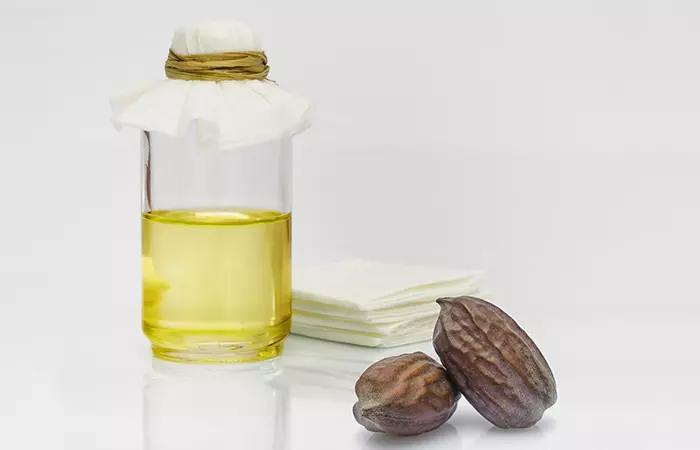
You Will Need
- 1 cup flat beer
- 1 tsp jojoba oil
Method
Pour one cup of beer into a jug and leave it out for a couple of hours or overnight until it goes flat. To the flat beer, add one teaspoon of jojoba oil and mix well. You can also add some other essential oils to this.
How Often?
You can use this rinse once in two weeks.
Why This Works
Beer is known for its conditioning properties (8). It helps make your hair silky and seals in moisture. This enhances the conditioning effects of jojoba oil, which forms a protective layer over your hair shaft, locking moisture in and adding shine (9).
11. Coffee Hair Rinse

You Will Need
- 2 tbsp coffee powder
- 2 cups water
Method
Boil two cups of water and to it add the coffee powder. Let it steep and cool for a couple of hours. You can also leave it overnight to cool.
How Often?
Use this once a week.
Why This Works
The caffeine in coffee helps prevent hair fall. This rinse also helps darken hair color by staining it.
The caffeine in coffee helps prevent hair fall (5) (6). This rinse also helps darken hair color by staining it.
12. Green Tea Hair Rinse
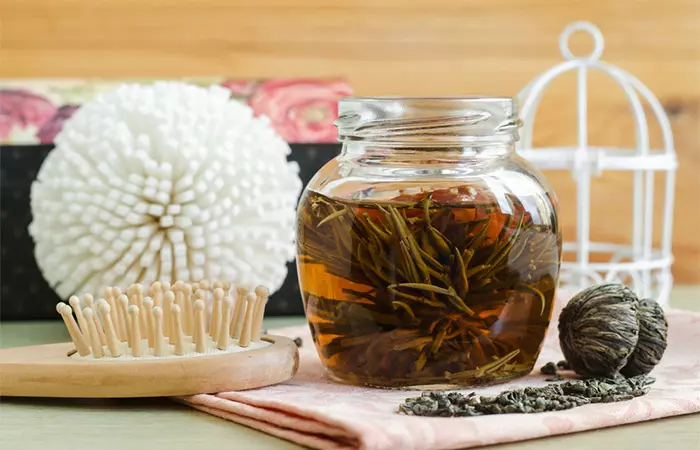
You Will Need
1-2 green tea bags
1 cup of boiling water
Method
Add the green tea bags to boiling water and allow them to steep for 5 minutes. Strain the liquid and rinse your hair with it at the end of your shower. Massage the scalp for 2-3 minutes and rinse it off with lukewarm water.
How Often
- Once or twice a week.
- Why This Works
- Green tea contains EGCG which may help improve hair health. It may stimulate the hair follicles to boost hair growth and prevent
- damage to the scalp and hair cells. Therefore, it is one of the best solutions to improve your hair and scalp health (10).
 Trivia
TriviaInfographic: Most Common And Effective Homemade Hair Rinses
Rinsing your hair at least once a week with nutritious and moisturizing ingredients may improve hair growth and prevent hair damage. We have mentioned many homemade rinses above, but we’d like to focus on the ones that are easier to make and commonly used by many.
Check out the infographic below to learn which are the most common and simple homemade hair rinses to make at home.
Some thing wrong with infographic shortcode. please verify shortcode syntax
A homemade hair rinse replenishes your strands with nutrients, tames frizz, regulates oil production, increases hair moisture, and offers many more benefits to your tresses. Adding a hair rinse to your hair care regimen amps up the health and appearance of your locks. The best part? You can make these rinses with simple ingredients that you can easily find in your kitchen like black tea, lemon juice, baking soda, and even Coca-Cola! Remember to use these hair rinses after you thoroughly wash and condition your hair.
Frequently Asked Questions
Do rinses damage natural hair?
No, homemade rinses can benefit natural hair as they act as shedding prevention, adding hair shine, and making the hair stronger. Rinses also reduce scalp itching, which is a common issue with natural hair.
Is there a rinse for gray hair?
You can use a black tea or coffee rinse to tint gray hair brown. A henna and indigo herbal hair rinse will tint gray hair brown, while a plain henna rinse will color your hair reddish-orange.
Can I rinse my hair without shampoo?
Yes, you can rinse your hair without a shampoo, especially for those with curly or coiled hair to help prevent tangles. You can also use a deep conditioner after the rinse to moisturize your hair.
What happens if I don’t rinse my hair?
Dirt and oil accumulate in the hair and scalp over time. If not rinsed properly, this buildup can create a breeding ground for fungal infestation and cause hair damage.
Can I rinse my hair with water every day?
Yes, daily rinsing with water can keep your hair fresh and clean. Make sure the water is of the right temperature to prevent dryness or split ends.
What is the best time to wash your hair?
Washing the hair in the morning will give it enough time to dry and also give you a fresh and clean start to the day. If you prefer washing your hair in the evening, ensure it dries thoroughly before bed, as wet hair can easily get damaged during sleep.
Can a homemade hair rinse be used on colored hair?
Most hair rinses made with gentle natural ingredients like aloe vera and tea can be used to rinse colored hair.
Can a homemade hair rinse replace the conditioner?
Yes, homemade hair rinses like apple cider vinegar hair rinse and baking soda rinse may help regulate the hair’s pH levels and add shine to the hair. Rinses containing jojoba, olive, or argan oil can deeply moisturize and nourish the hair.
Are there any risks or side effects associated with using a homemade hair rinse?
Yes, homemade hair rinses made with oils or herbs may cause an allergic reaction or skin irritation in some people. Ensure you conduct a patch test before including the hair rinse in your hair care routine.
Illustration: Brilliant Homemade Hair Rinses That Work Wonders
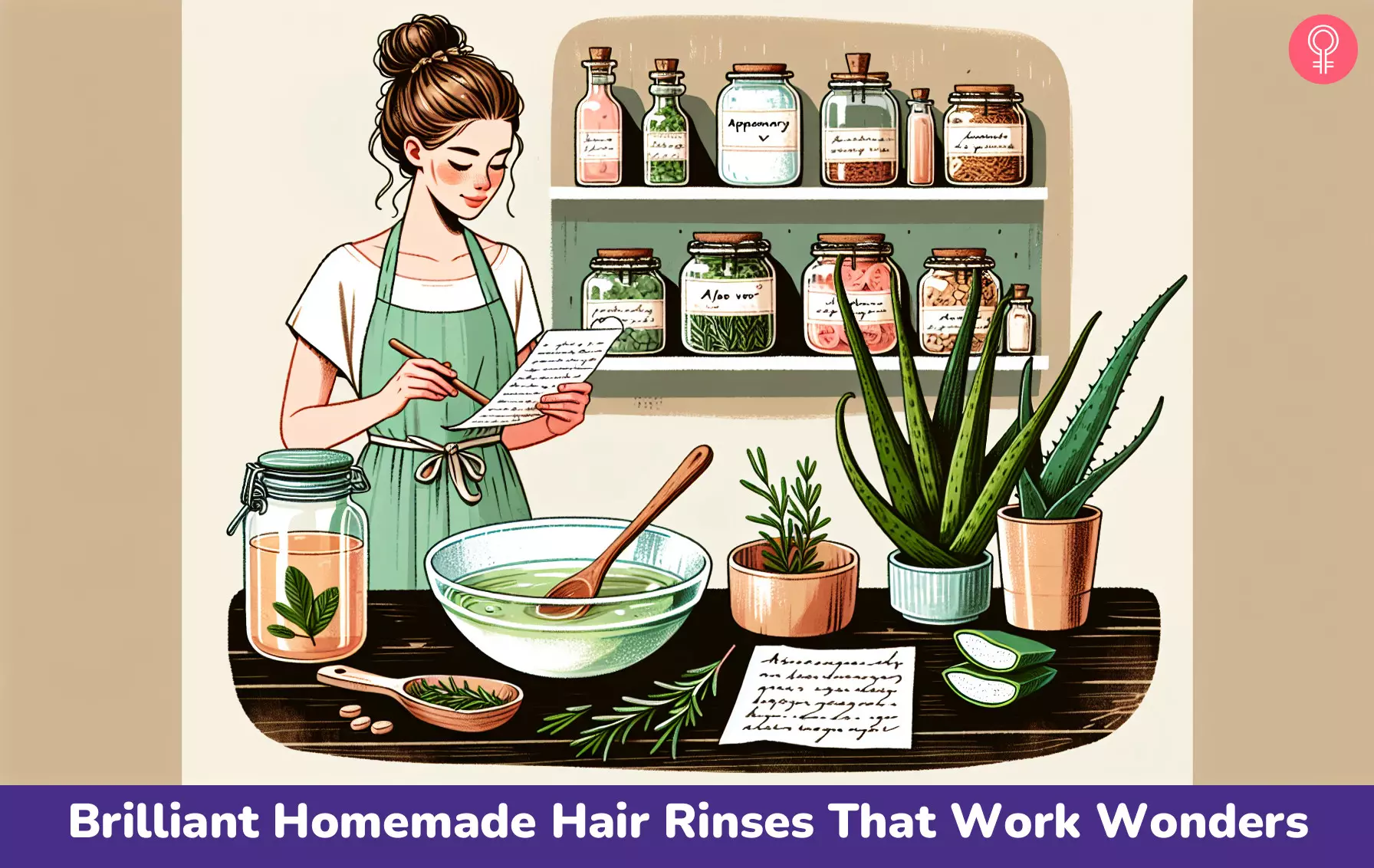
Image: Dall·E/StyleCraze Design Team
Unleash the power of Ayurvedic hair care with a rosemary-infused hair rinse. Experience stronger, healthier hair with this natural remedy. Check out the video below.
Personal Experience: Source
StyleCraze's articles are interwoven with authentic personal narratives that provide depth and resonance to our content. Below are the sources of the personal accounts referenced in this article.
i. My Aloe Vera Hair Wash Routinehttps://www.youtube.com/watch?v=pfinDLGRG8Y
References
Articles on StyleCraze are backed by verified information from peer-reviewed and academic research papers, reputed organizations, research institutions, and medical associations to ensure accuracy and relevance. Read our editorial policy to learn more.
- A Close Look at Aloe Vera Barbadensis and It’s Effect on Hair Health
https://www.researchgate.net/publication/342588964_A_Close_Look_at_Aloe_Vera_Barbadensis_and_It’s_Effect_on_Hair_Health - Evaluation of Aloe vera barbadensis for its antimicrobial phytochemical and ethnobotanical status
https://www.researchgate.net/publication/342571265_Evaluation_of_Aloe_vera_barbadensis_for_its_antimicrobial_phytochemical_and_ethnobotanical_status - The Role of Vitamins and Minerals in Hair Loss: A Review
https://www.ncbi.nlm.nih.gov/pmc/articles/PMC6380979/ - A hair growth-promoting effect of Chinese black tea extract in mice
https://pubmed.ncbi.nlm.nih.gov/23832356/ - Role of Caffeine in the Management of Androgenetic Alopecia
https://www.ncbi.nlm.nih.gov/pmc/articles/PMC3500065/ - Complementary and Alternative Treatments for Alopecia A Comprehensive Review
https://www.ncbi.nlm.nih.gov/pmc/articles/PMC6388561/ - Honey in dermatology and skin care a review
https://pubmed.ncbi.nlm.nih.gov/24305429/ - Essentials of Hair Care often Neglected: Hair Cleansing
https://www.ncbi.nlm.nih.gov/pmc/articles/PMC3002407/ - Jojoba Oil An Updated Comprehensive Review on Chemistry Pharmaceutical Uses and Toxicity
https://www.ncbi.nlm.nih.gov/pmc/articles/PMC8197201/ - Human hair growth enhancement in vitro by green tea epigallocatechin-3-gallate (EGCG)
https://pubmed.ncbi.nlm.nih.gov/17092697/
Read full bio of Dr. K. Harish Kumar
Read full bio of Arshiya Syeda
Read full bio of Ramona Sinha
Read full bio of Medha Deb





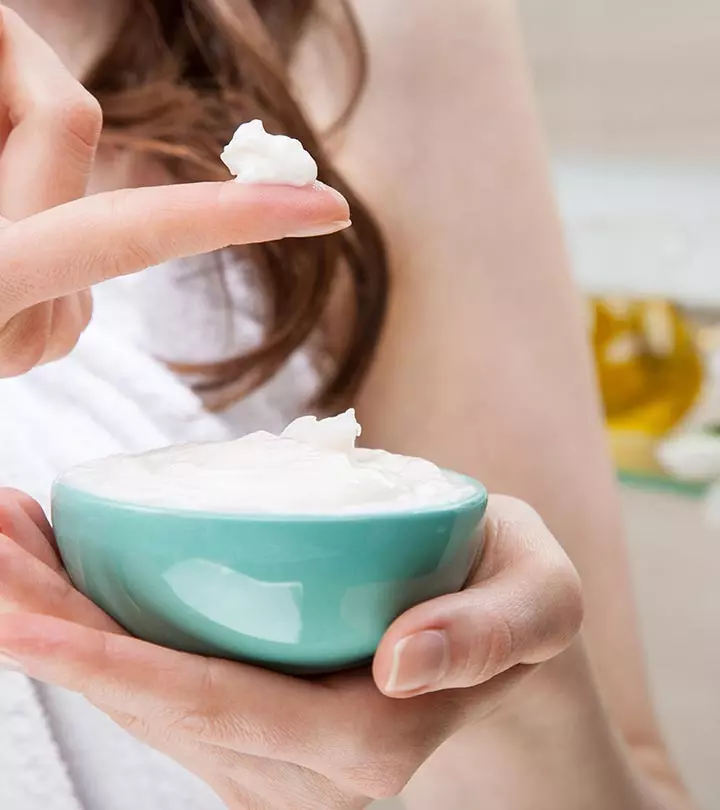

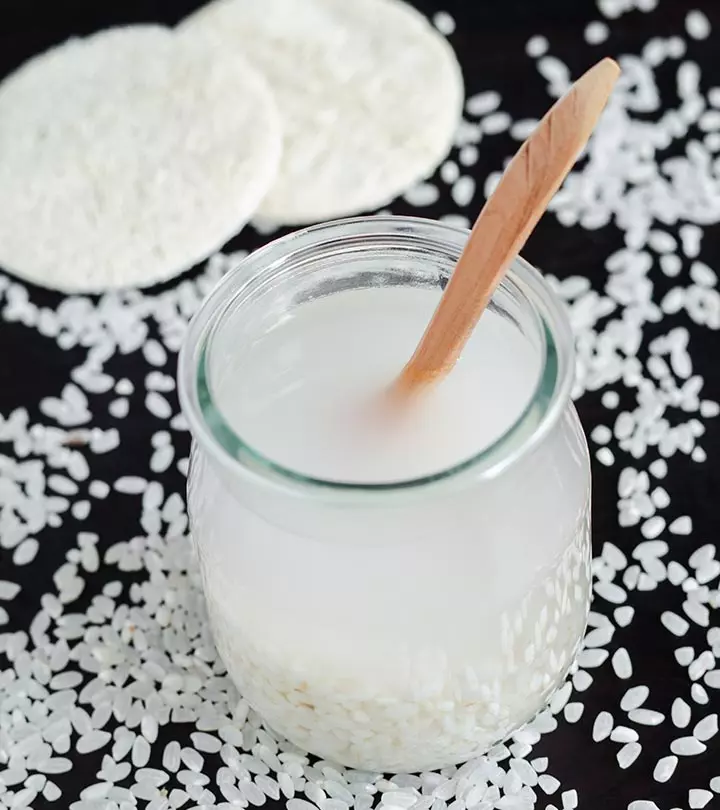
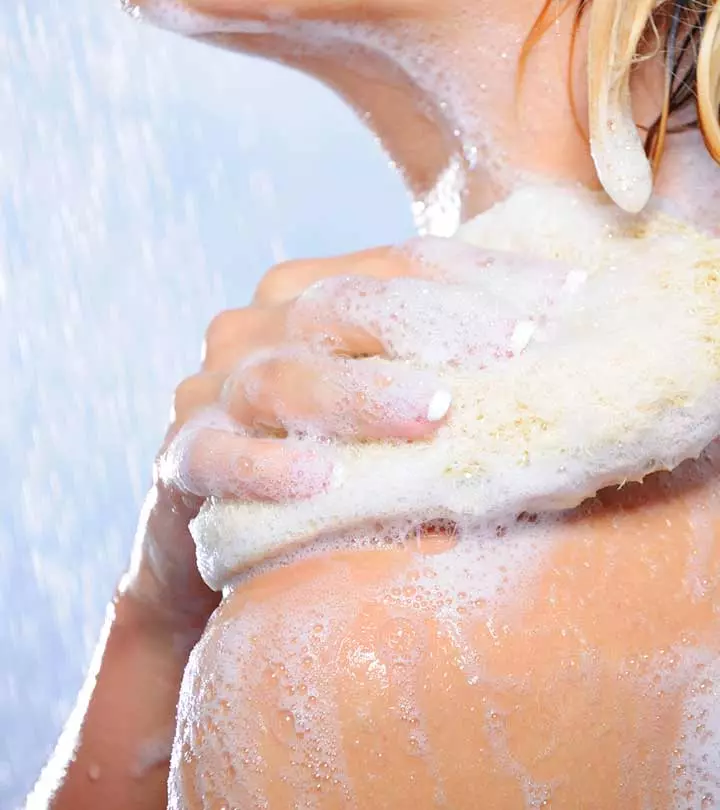
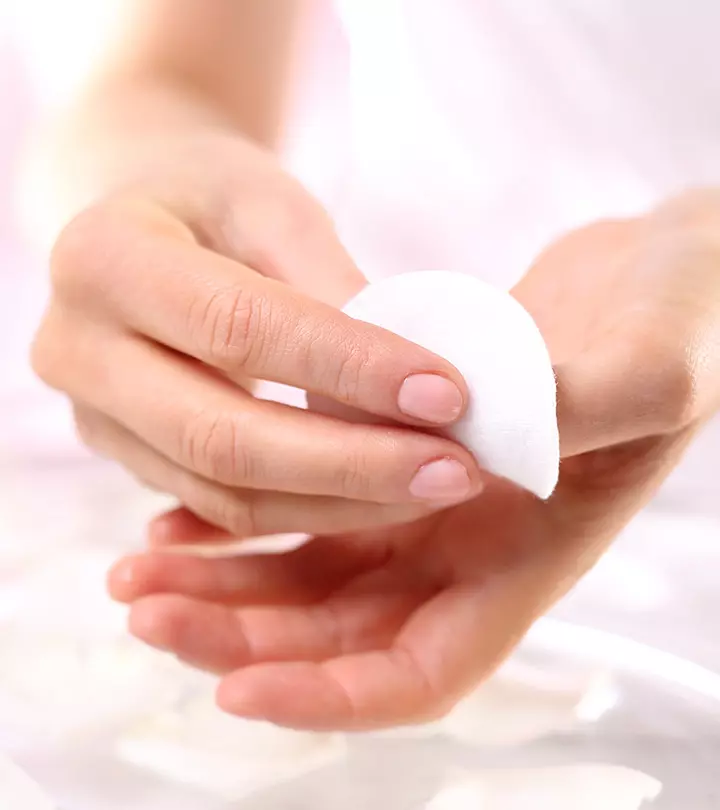
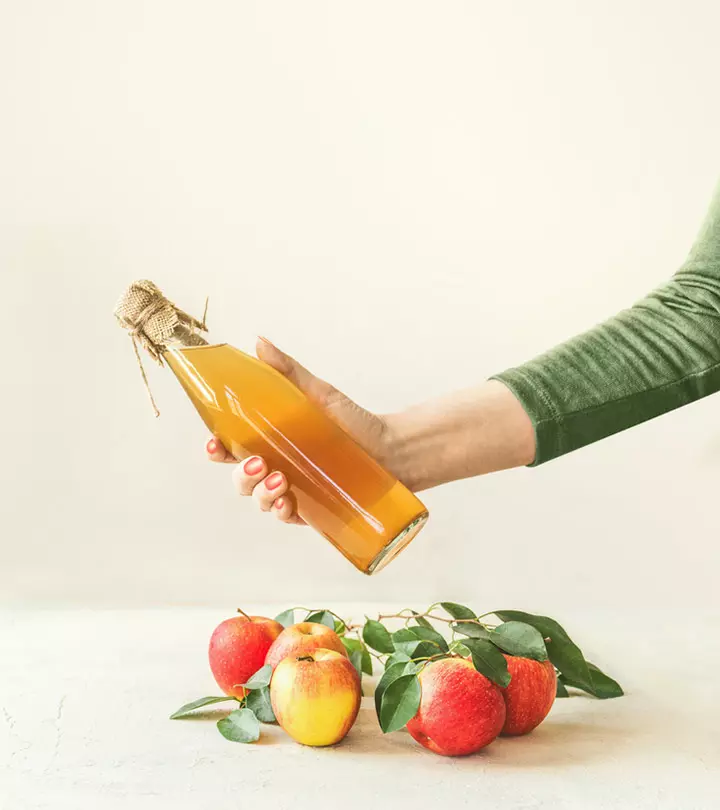
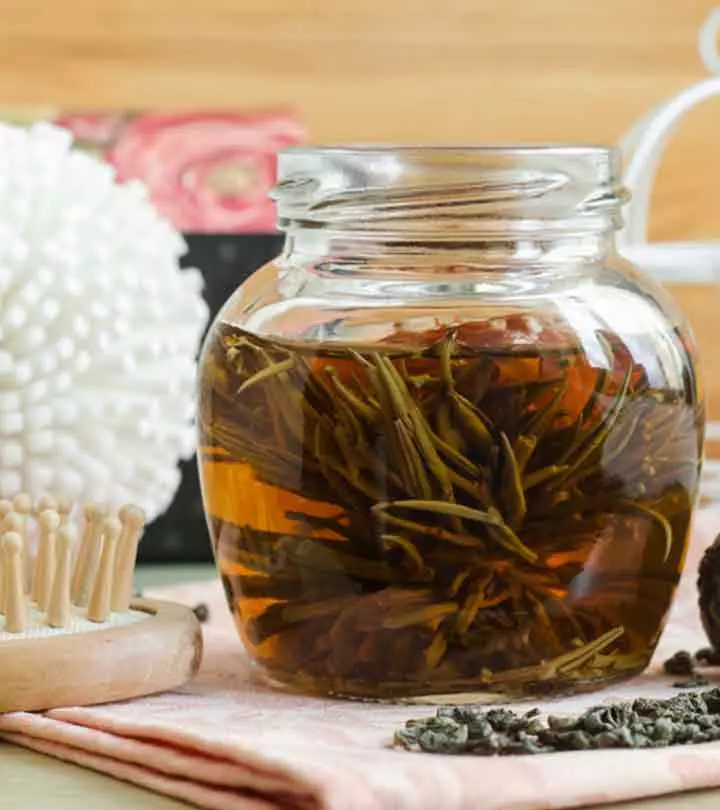
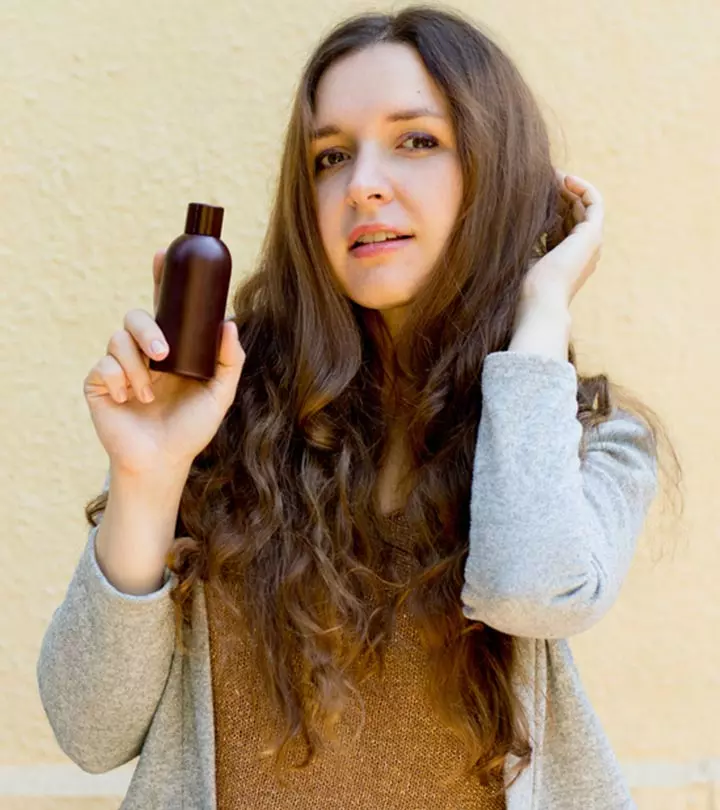
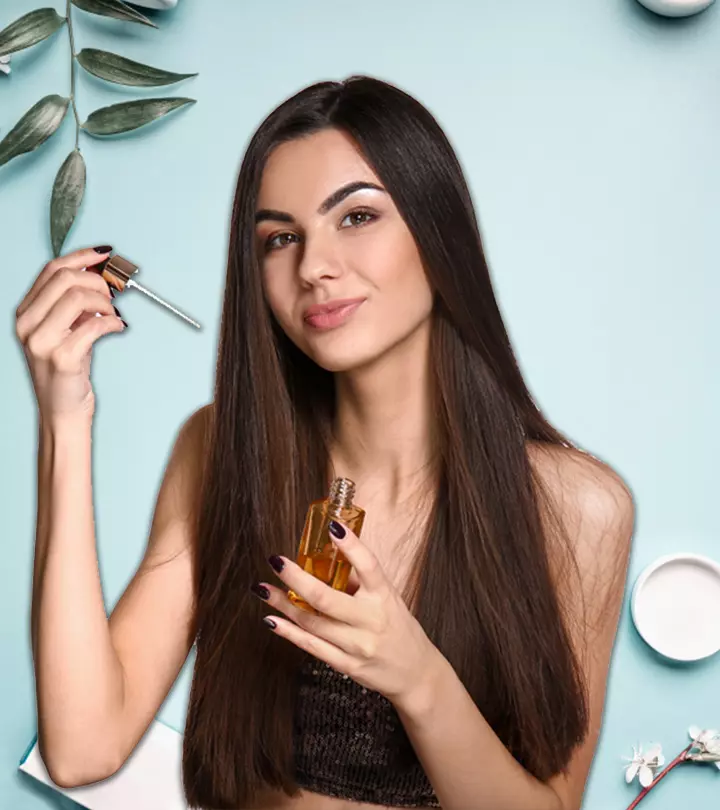
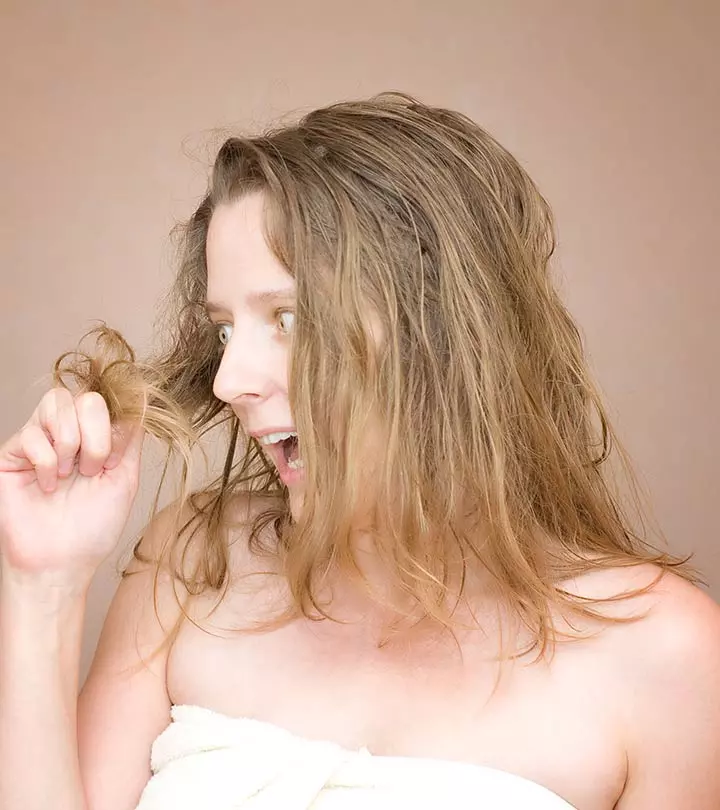
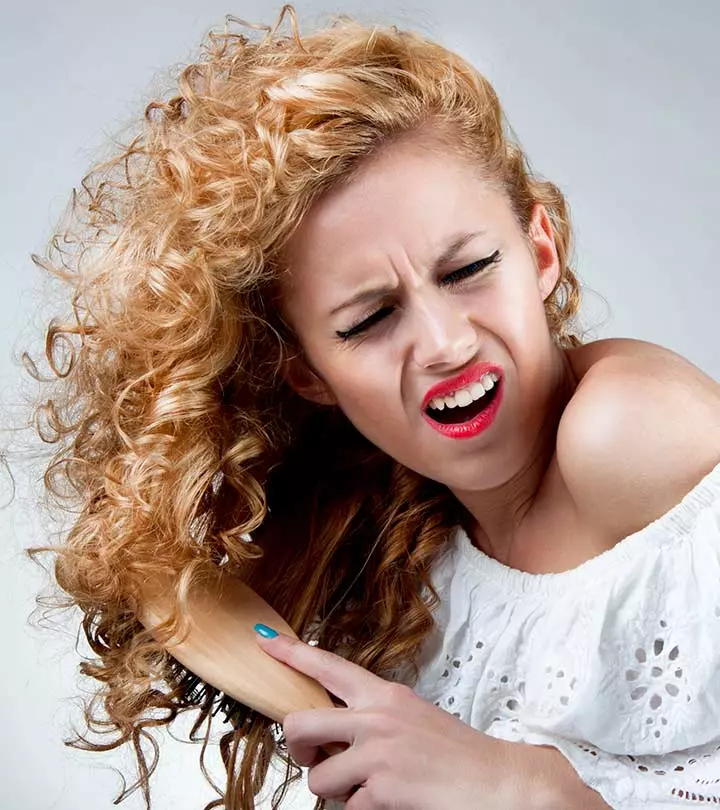
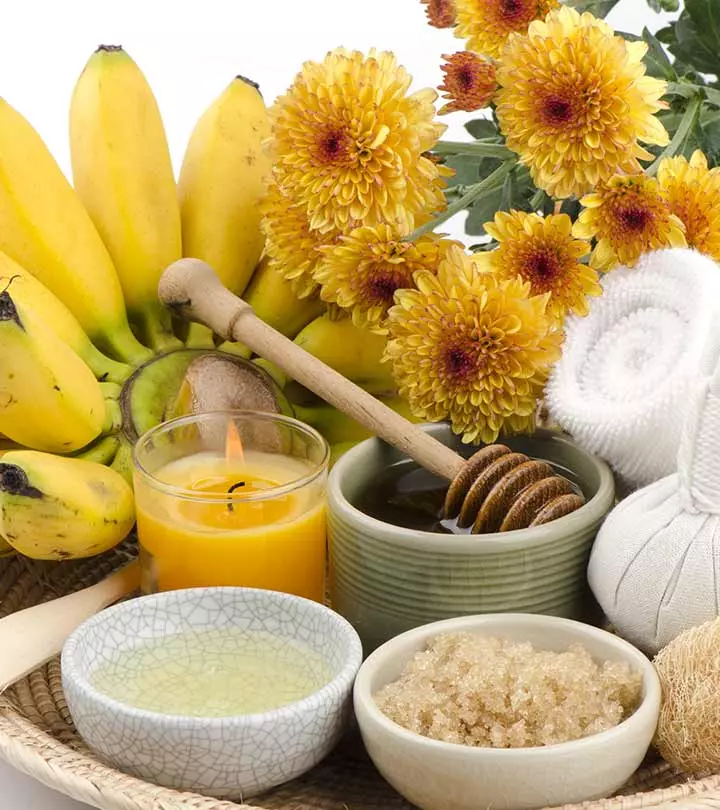


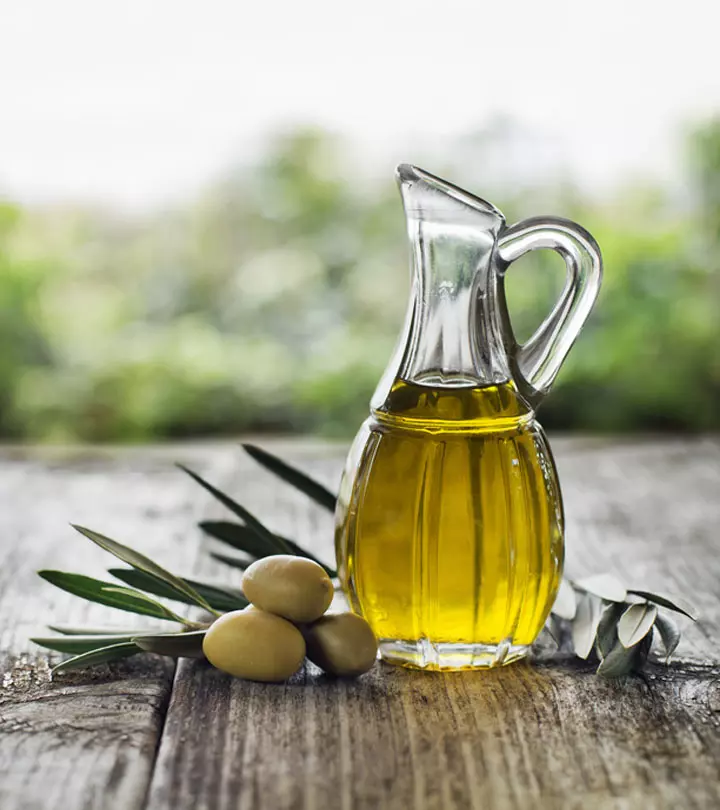
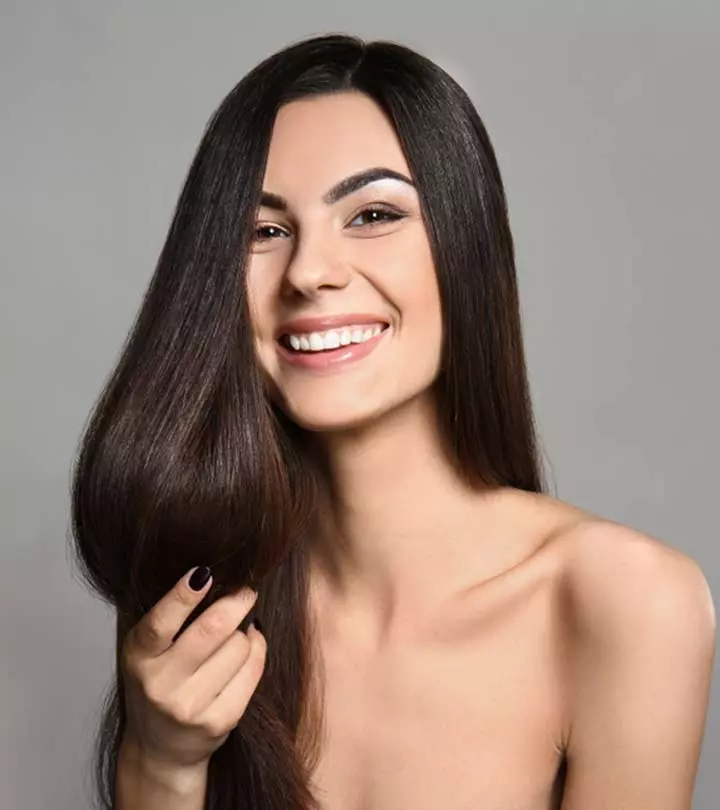

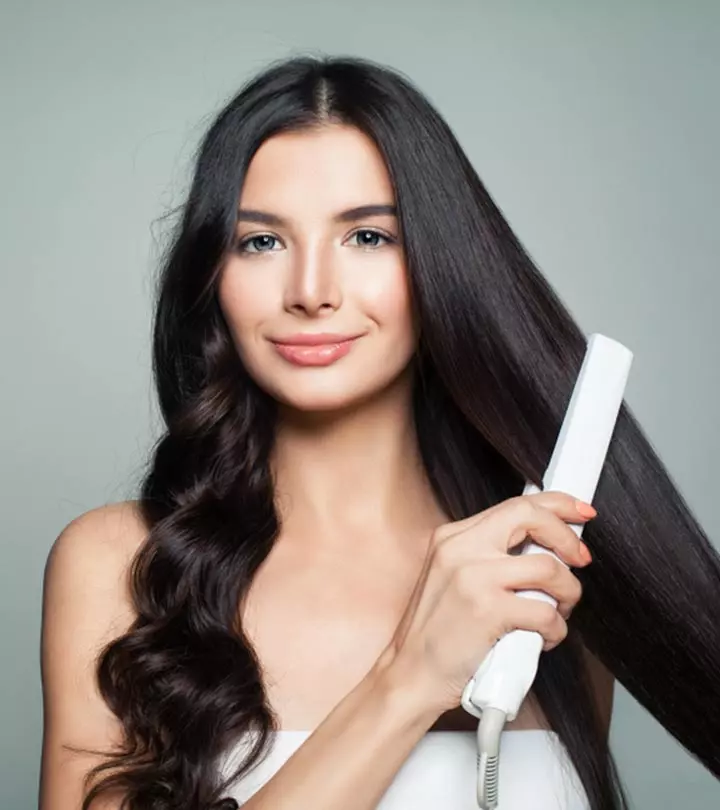
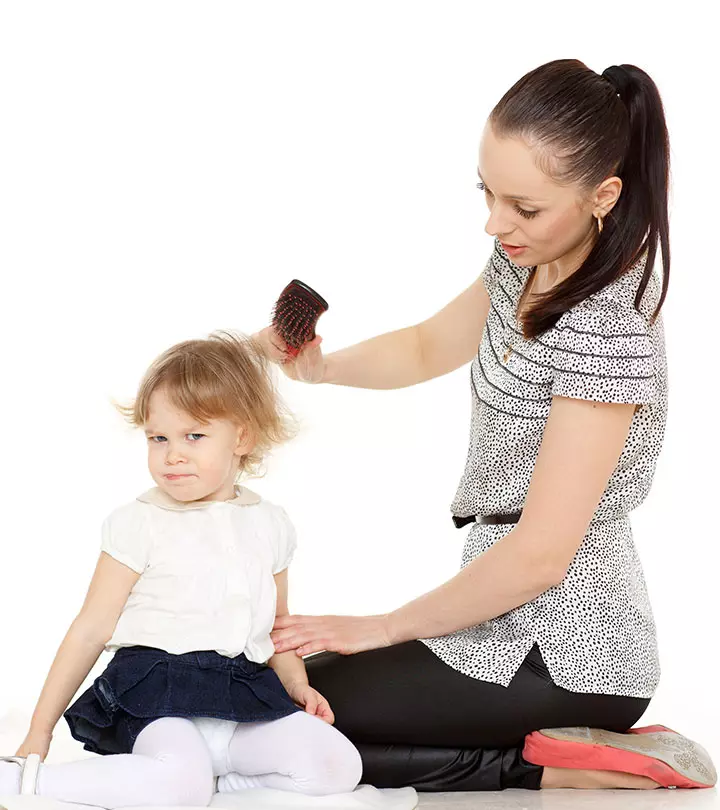

Community Experiences
Join the conversation and become a part of our empowering community! Share your stories, experiences, and insights to connect with other beauty, lifestyle, and health enthusiasts.